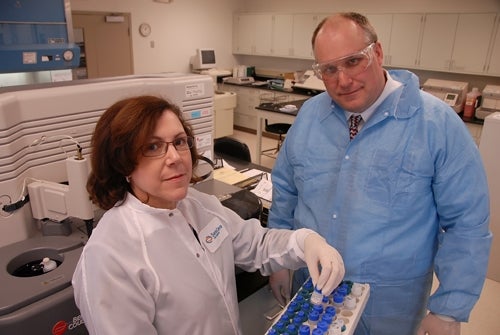Milford’s SeraCare Life Sciences is used to turbulent times.
In 2005, members of its executive team were under investigation by the Securities and Exchange Commission for financial fraud. The company eventually filed for bankruptcy and reemerged in 2007 thanks to a new management team.
One of the central figures in that turnaround was Susan Vogt, who joined the company in 2006. Under her leadership, it seemed like the company was on a positive trajectory.
But the good times did not last for the company. Nor did they last for Vogt.
In July, after SeraCare welcomed three new members to its board of directors, Vogt was terminated as CEO after less-than-robust revenue growth.
Since then, the company has been mulling offers to be acquired and investors who track the company said the future is uncertain.
Decisions, Decisions
Despite the management shakeup and the dragging revenues, SeraCare is not a fledgling company that is about to go out of business, analysts say. The company, like many others in the past few years, has been hit by the economic downturn, but the issues it faces are not insurmountable, according to Robert Wasserman, an analyst with Dawson James Securities in Boca Raton, Fla.
“This is not a company that needs a white knight or a bailout,” he said. “It’s a company that needs to decide what direction it’s going to take into the future.”
The company is profitable, not as profitable as it has been in years past, but it is making money and sitting on a significant amount of cash, Wasserman said. That makes it an attractive acquisition target for a larger organization or investment firm.
But a sale is not necessarily what the company needs, Wasserman suggested. What it does need are increased revenues.
In the second quarter of the year, the company made a $523,000 profit on $11 million in revenues. That’s compared to a $1.3 million profit on almost $13 million in revenues during the same time last year.
Better Times
While revenues and profits have declined recently, it’s not long ago the company was rolling along. Last August the company completed its fifth consecutive profitable quarter. But in the last six to eight months, the economic downturn caught up with SeraCare.
The company makes diagnostics products for testing biological materials. It also has a bioservices division that manages and stores large-scale banks of biological materials.
The company is not short on customers, analysts said. Just this year SeraCare got a government contract renewed for another five years, a move that could be worth up to $17 million over the life of the contract.
But the slowdown in the national economy has also slowed SeraCare’s revenues, said analyst Kevin DeGeeter, of New York investment firm Ladenburg, Thalmann & Co. Doctors and patients are generally more cost conscious, leading to fewer tests. Government funding for health programs has also leveled off in recent years, he said, which can impact the company.
“They really haven’t had the best last six to eight months in terms of operating performance,” DeGeeter said. “They did a really good job readjusting the cost structure out of bankruptcy, but they really haven’t been successful in growing revenue.”
Company officials have recognized this.
Gregory A. Gould, the interim CEO, said the slow growth is part of the reason a CEO change was made. Gould joined the company with Vogt in 2006 and has been the CFO since then.
“Basically, we just weren’t growing,” Gould said.
So the new board made a change.
In July the company announced that Vogt would be terminated. She received her salary for the year in a $400,400 lump sum and the board agreed to pay her a pro-rated incentive bonus based on performance. The board determined the amount of the bonus, however, would be $0.
Just a few weeks earlier, the company received an unsolicited offer to be purchased for $82 million by New York hedge fund MSMB, which holds stakes in various other biomedical companies. MSMB offered a 22-percent premium on the company’s stock the day before the offer. Company officials initially balked at the proposal, but in recent weeks have said they are now exploring “strategic alternatives” for the company, including a possible sale.
While Gould would not discuss the potential sale, he is optimistic about the overall direction of the company. Moving forward, Gould said the company is focusing its efforts on serving existing clients and offering new products and services to attract new customers.
“We have very good customers and we offer products to the market that are serving unmet needs,” he said. “I’m very confident about the future of the company.”

